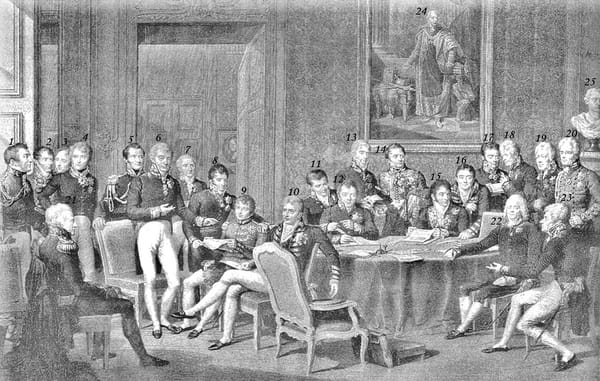This week, the latest National Conservatism conference will convene in Brussels. For the organization, founded and chaired by the Israeli-American political philosopher Yoram Hazony, this amounts to planting a flag in enemy territory. In the European context, “preserving the nation-state”—the event’s theme—means opposing the supranational institution headquartered in the Belgian capital. But once you get past the shared hostility to what Brussels represents, the national conservatives are less clear on what a Europe liberated from EU tyranny should look like. For Nigel Farage, the leading Brexit advocate and a NatCon speaker, it means exiting altogether; for other speakers, notably Hungarian Prime Minister Viktor Orbán, it apparently means remaining in the bloc and attempting to set it on a different course.
The deeper issue at stake here is whether conservatives should reject supranational governance as such, or merely the specific course it has taken in Europe. This is a more complicated question than it may have seemed in recent years, as liberals and progressives have sought to uphold the legitimacy of a rules-based international order grounded in institutions like the European Union and NATO, while the right has increasingly defended national sovereignty. In earlier eras, however, these positions were reversed. By taking a longer historical view, conservatives may find themselves better able to propose viable alternatives to the current international order.
